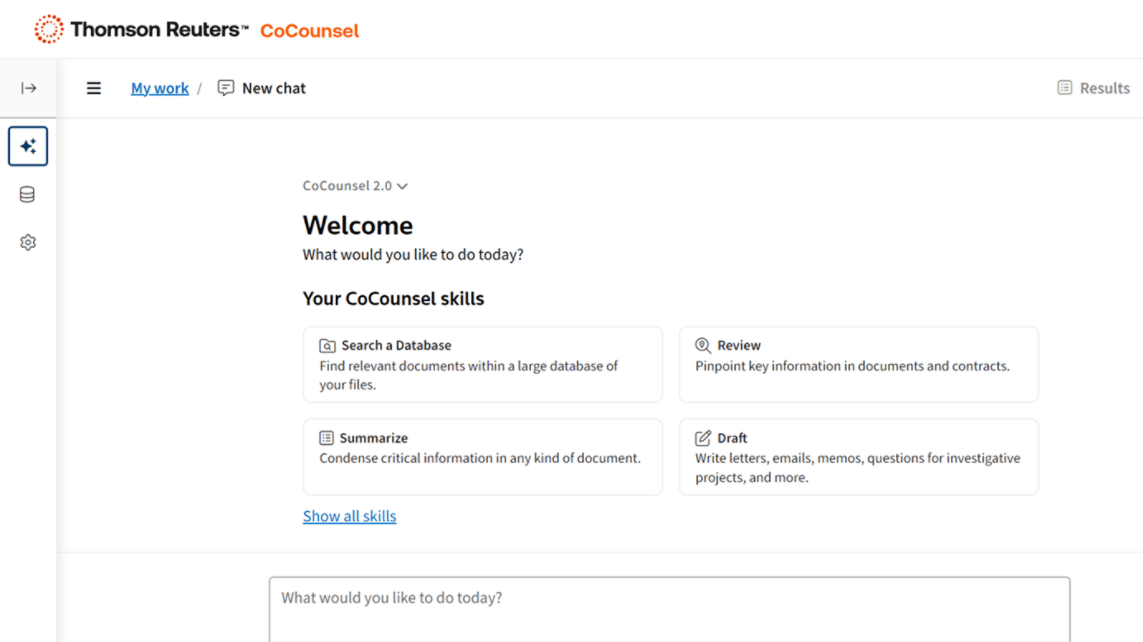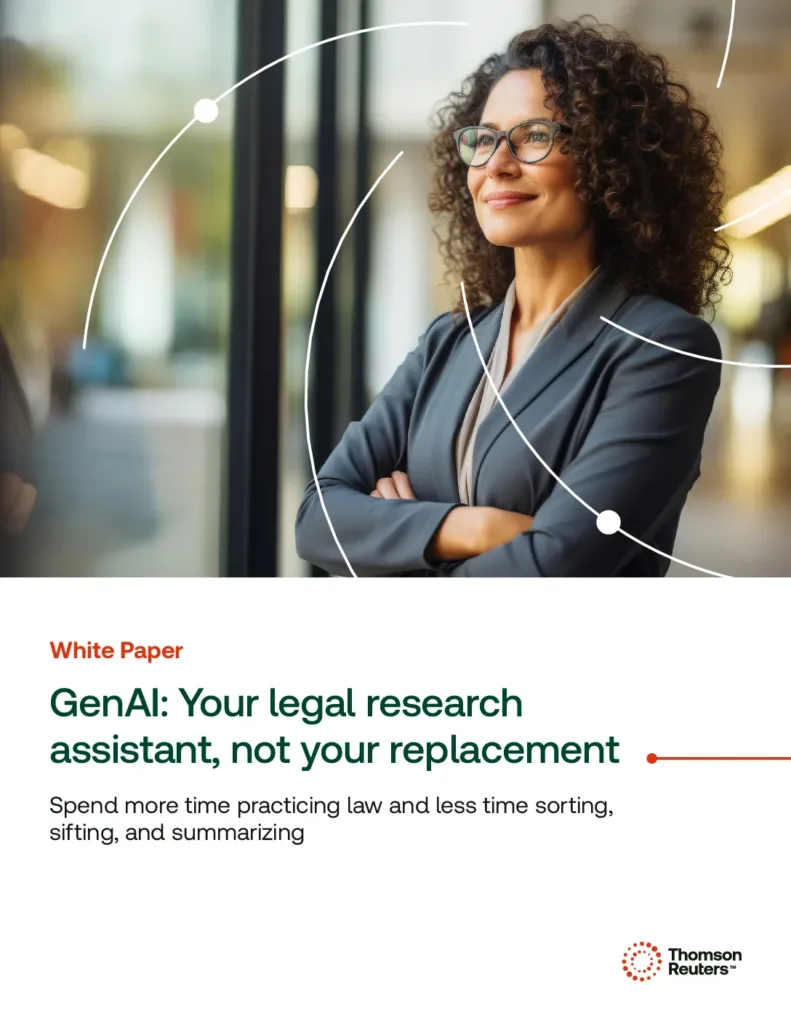Let’s separate fact from fiction, and look to the future
A recent survey determined that a large majority of lawyers believe that generative AI can be readily applied to legal work, even if they disagree on whether it should be. But what do paralegals think? For many, the transformative nature of AI leaves some feeling uneasy. However, others see AI becoming a critical part of their professional toolkit.

CoCounsel
Bringing together generative AI, trusted content and expert insights for all legal professionals
Meet your AI assistant ↗Jump to ↓
| Fact: AI can augment the work of paralegals |
| Fact: Human expertise cannot be replaced |
| Fiction: Paralegals will become obsolete |
| Fiction: Job losses are guaranteed |
| Future: Lean in |
Fact: AI can augment the work of paralegals
The work of paralegals can be both routine and strategic. For the most time-consuming tasks such as research, document review, and data entry, AI can be a powerful tool to get paralegals to high-value tasks faster. The payoff with AI is in volume. A paralegal is skilled at quickly analyzing a document to extract pertinent information. But when that paralegal needs to analyze a large number of documents, AI can accomplish this in minutes or seconds.
Few paralegals complain of a lack of work to fill their day – just the opposite is true. So, when AI can handle routine drafting and information extraction, paralegals can focus their brainpower on legal analysis, client communication, and critical thinking.
Fact: Human expertise cannot be replaced
If volume is a characteristic of artificial intelligence, nuanced decision-making is not. Its output needs a human eye to review and is most often done by paralegals. While it may extract hard-to-find cases through a prompted query, a trained professional needs to review those cases to ensure they apply to the matter at hand.
Paralegals also play a nuanced role in client communication. They are often a client’s daily contact, handling sensitive and personal information. While AI can initiate and organize a client intake form, it can’t console a divorce applicant or listen to a widow describe her estate wishes. These are genuinely human interactions.
Fiction: Paralegals will become obsolete
The paralegal profession has never been a static one. Prior to the mid-70s, paralegals poured through law books digging for answers to prepare legal briefs. With the introduction of Westlaw, the hours they spent in the law library were converted to higher tasks. Legal document automation tools made paralegals even more efficient by simplifying the drafting process, again, freeing time to focus on analysis and case management. In neither case were paralegals deemed obsolete. In fact, they were empowered to do more. For those who embrace it, the same can be true with artificial intelligence.
An important consideration with artificial intelligence, particularly with generative AI, is trust. Do lawyers trust its output? At this point in the development of AI, most lawyers do not. However, the trust relationship between a lawyer and a paralegal is paramount. Lawyers who depend on the accurate, relevant work a paralegal provides will want to keep that professional on their team.

White Paper
Unlock the hidden value in your legal department with data-driven insights
Access white paper ↗Fiction: Job losses are guaranteed
That some legal positions will change, shift, or be cut may be true with the adoption of AI. That’s not a new dynamic for organizations that look to improve profits by increasing efficiency and productivity in all areas. With a service that’s based on billable hours, every gain in production helps the bottom line. However, experts do not predict that AI will cause massive layoffs of the approximately 300,000 US paralegals in the foreseeable future. As legal departments embrace the technology and learn to apply it in their legal routines, efficiency gains will be welcomed.
Future: Lean in
Paralegals are often tasked with testing and evaluating new technology. They should embrace this role with generative AI. Rather than viewing it as a threat, paralegals can welcome it as a valuable assistant. The more educated paralegals are in the use of AI, the better they can take advantage of its benefits. AI will continue to get “smarter,” as data scientists further develop the technology, and users provide more experiences to train it. Paralegals can be the front line of adoption – and the lawyers they work with will benefit. AI is not the enemy of paralegals, it’s the future.












